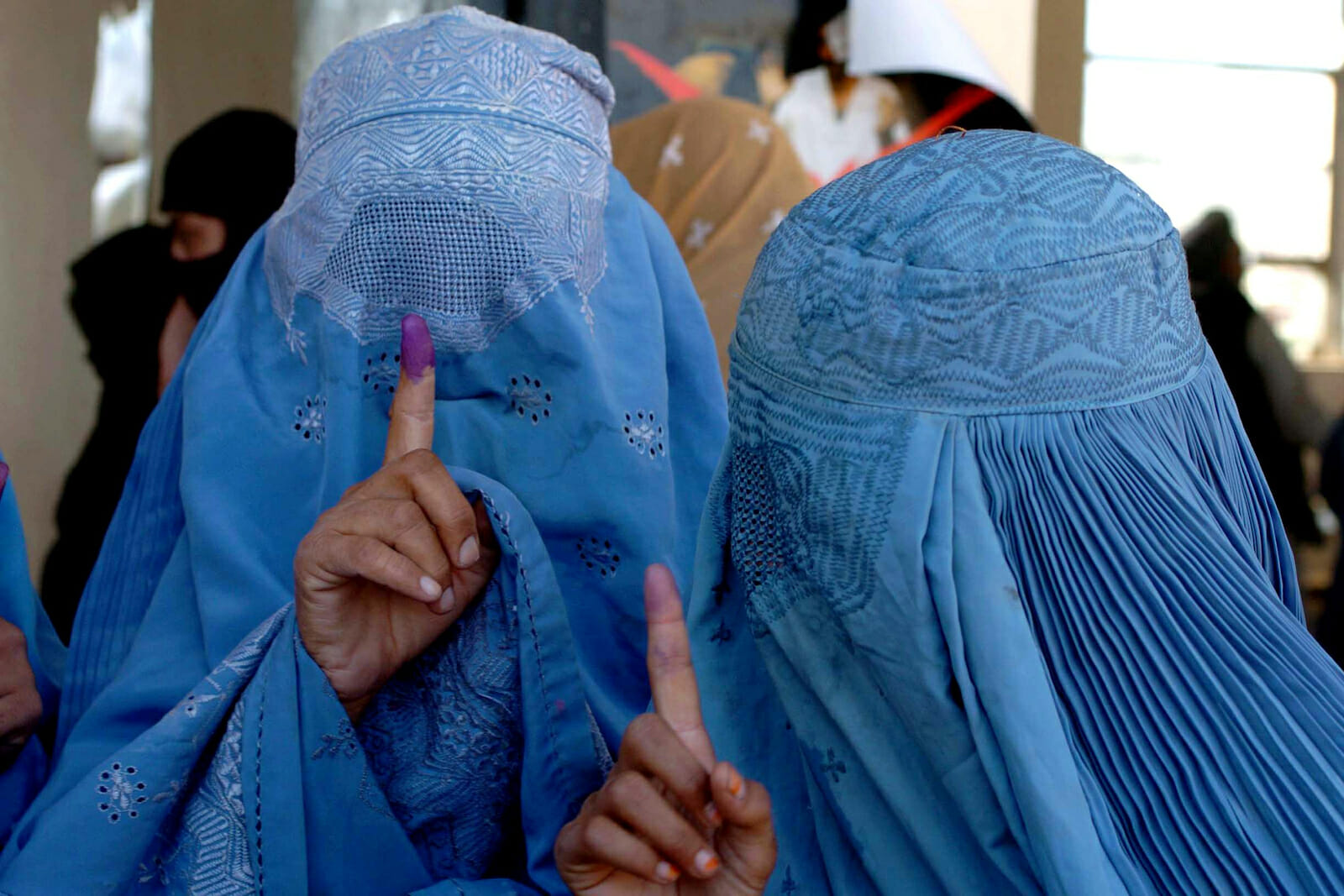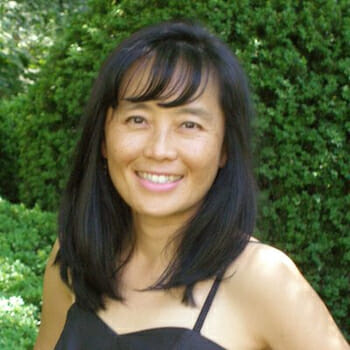
Don’t Sell Afghan Women Short
Twice during the last few months, Afghan women have come out to vote in higher numbers than expected despite Taliban threats of violence. Whether they voted for the candidate their male relatives instructed them to or made the choice themselves, their act surprised the international community. Their appearance at the polls represented their desire for change.
For most Americans, information about Afghan women comes from television and newspapers. We formed our opinions seeing these women in burkas and hearing dreadful stories about their lives. We sympathized with those who were victims of a crime, forced marriages and/or abuse. Our tax dollars flooded their country with educational and empowerment programs. Yet after fourteen years of activity, how well do we understand Afghan women?
Given that U.S. history, culture and religion are so different from Afghanistan’s, it is all too easy for Americans to assume that the Afghan people and their culture are somehow inferior. Moreover, it is tempting to view Afghan women as powerless, living under the control of their husbands or fathers. While most Afghan women will not rise to the prominence of Parliament member Fawzia Koofi or Herat’s Chief Prosecutor Maria Bashir, they are not as powerless as we might assume.
Educated or not, they are complex characters and survivors. They will act when they feel they can. Many lived through the Soviet occupation in the 1980s, survived Taliban oppression in the 1990s, and have been readjusting to Western influence since 2001.
Given their ability to survive and adapt over the last thirty years, these women are much more courageous and versatile than many give them credit for.
Initially entering Afghanistan in 2011 as a rule of law advisor for a U.S. government-funded program, I witnessed women and children begging on the dusty streets of Kabul. But shortly thereafter I also saw groups of schoolgirls laughing with books in their hands. Moreover, local women in burkas were walking about town without male relatives and some even entered taxis by themselves on their way to work.
As our program progressed, I was asked to observe a seminar taught by one of our staff. When I entered my first class I was surprised. A young female Afghan lawyer was teaching the course. The 40 students were all men. They were seasoned local judges, lawyers and police officers from the Kabul area. As I sat down, she, wearing a headscarf, acknowledged me. It was clear that this young woman was in complete command of the class.
Following this initial experience I was surprised again when weeks later I was informed that she would teach a short course in another province. Since this involved traveling and overnighting, she should not go without an appropriate chaperone, as the Afghan culture is highly “protective” of a woman’s reputation. It was ironic that on the one hand she was a dynamic law professor, a symbol for other Afghan women. Yet on the other hand, she was still limited by local customs to the extent that she was discouraged to “travel” without supervision. I was asked to offer myself as her chaperone. But when I approached her, I was astonished. She said she would make the trip without a chaperone and she did.
In Kunduz, one of the most conservative provinces in Afghanistan and the place where the number of forced marriages and unreported crimes against women were still high, I was amazed to find little support for the local women coming to our classes inside the regional training center. Albeit it was an all-male police training compound, other educational programs such as literacy and rule of law were housed here.
As the only international woman living and working inside this training center with over 700 men, I noticed that we rarely had a female guard at the entrance. This meant that each Afghan woman entering would be searched by a male security officer. He would run a metal detector closely over her body and dig his hands into the privacy of her purse, acts that were against the social norms of Afghan society and which even some Western women would find distasteful.
Besides that, there were no female designated restrooms. Afghan and visiting foreign women were relegated to either using one unisex bathroom, which international military frequented, or an unoccupied trailer with a toilet. Furthermore, neither of the two Afghan dining halls provided for Afghan women’s needs. They could not comfortably eat with hundreds of male police trainees leering at them.
Watching the female students enter our compound one morning, I saw how courageous they were. Kunduz was a rural province where eyes watched and gossip spread. They put their reputation at risk and tested the limits of their culture by entering the male-dominated compound. Yet these women understood the bigger picture and were willing to deal with some discomfort, social and physical, in order to receive the training they needed, a huge step in a society ruled by men.
But their strides towards advancement did not end there. Struggling with the use of a male interpreter as female ones were unavailable, they spoke to me as a group about the camp’s lack of amenities for women. To my surprise, they even expressed regret that I was the only female living on-site. “You must be so lonely,” one Afghan woman accurately observed. As I shared their issues with the all-male American camp management it was obvious that only the women thought of these issues as pressing concerns. One manager, when the subject of female restrooms was raised, said to me, “You don’t have many women in your classes anyway.”
We had approximately six women to every fifty men in our courses and were trying to increase female attendance.
One day I had a taste of what the Afghan women feared. I went to the Afghan cafeteria to help carry lunches to our female students waiting elsewhere. As soon as I entered and was visible, normal chatting among hundreds of male police trainees suddenly became raucous. Men were pointing, shouting and standing on chairs gesturing lewdly at me without restraint. Alarmed, I picked up a tray of food and dashed towards the only door. Unfortunately, men were still entering. As my path was blocked I became increasingly anxious. Only when their leader shouted a command in Dari did those at the exit move aside. It was a narrow escape.
Similarly while on walks inside the compound, the Afghan police trainees would gather and stare at me. A small crowd quickly increased to an alarming number. This continued until hundreds of them lined the dirt path I was on. It was akin to the scene in Alfred Hitchcock’s The Birds where Tippi Hedren sat near a jungle gym. Every time she looked more and more crows gathered near until a disturbingly high number caused her to run into a building. Afghan women had good reasons for not wanting to come into our camp.
In recent years the international community has increased training at alternative locations more culturally acceptable for local women. Because these classes were off compounds there were many security issues. Despite the danger, fearless Afghan women continued to attend. Recently, these women came out to vote showing their valor, versatility and desire for change.
As 2016 approaches and the U.S. is focused on exiting Afghanistan, it will be difficult to make significant changes in our peace-building activities. We should know by now what is theoretically possible for Afghan women may not always be culturally practical or palatable. We should appreciate the acts of courage we have seen, and respect these women’s right to preserve traditions. We should honor the choices they make even if the choices were not ones we would have chosen. These women know their environment and are the best assessors of what they have at stake.
We are only there for the interim to share what we know and what has worked for us. We should not sell these women short and conclude they are inflexible or inferior because the results of our programs are not what we had hoped for. Afghan women have survived occupation, war, and oppression. They will survive our presence too. We are the ones that need to adjust.
